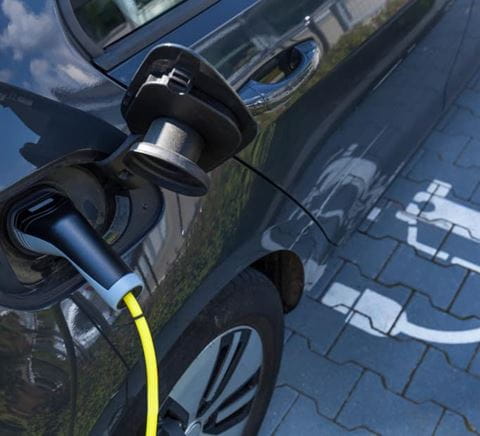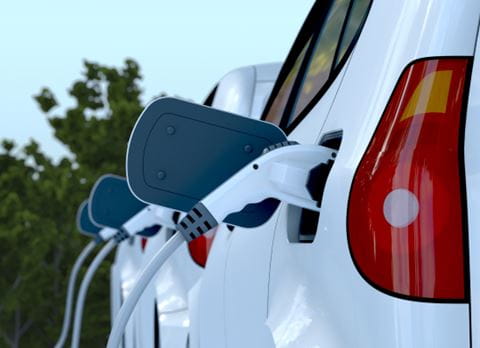
Electrify your fleet
Why should you electrify your fleet? It’s simple: internal combustion engine (ICE) vehicles account for a significant quantity of global greenhouse gas (GHG) emissions. There’s an urgent need to reduce emissions to prevent the worst effects of climate change, and with 50% of vehicles on the roads today registered to corporate organisations, businesses have a key part to play.
But electrification is not only an opportunity to lower your business’s environmental footprint (and keep your customers, partners and investors happy). It’s also a way to improve cost efficiency thanks to a reduced total cost of ownership (TCO; see below) and to give employees a better and more high-tech driving experience.
At the same time, many companies are recognising not just the benefits of making the switch, but also the necessity of doing so. With greater regulatory pressure from governments and other authorities and higher sustainability requirements in commercial tenders, going electric is a vital condition for securing business continuity.
For Ayvens, the question is not why go electric, but when. And the answer is now.
We can actively support your transition to an electric fleet with a 5 step approach:
- Diagnose
In the first phase of fleet electrification, Ayvens Consultants help clients benchmark against peers, assess country and employee readiness, establish CO2 and TCO baselines, and define achievable targets. These steps are crucial for a successful transition to an electric fleet, tailored to our clients' specific goals.
- Model TCO & CO2 scenarios
Working with you we will create TCO and CO2 models and scenarios tailored to your fleet strategy.
- Select the best mobility solutions
Optimising fleet costs, selecting the right vehicles and OEM partners, exploring multimodal mobility options, and tailoring charging solutions to both your commercial and passenger fleets are all crucial at this stage.
- Engage your stakeholders and employees
Working with you, we will help engage your stakeholders and employees to strengthen your business case by providing materials for employee training and internal meetings
- Implement, monitor and optimise
Updating mobility policies, introducing reporting capabilities to track TCO and CO2 evolution, measing employee satisfaction and more are all included in the final stage of the transition plan.
Should my company fleet go electric?
When it comes to the big decision, there are three major factors to consider:
- The route
Can your employees easily drive between home and work? Or do some people need to cover longer distances on their commute, or to reach clients?
- Charging options
Is home charging possible for your employees? Or will they rely on public charging stations or office charging points?
- The models
Do some of your employees need more from their vehicle when using it outside work (like a large boot or space for all the kids)?
A Green Scorecard to make TCO and CO2 easy
Balancing sustainability and cost savings in fleet management can be challenging. That's where the Green Scorecard comes in. The Green Scorecard is a workshop that helps you make smart choices for your fleet that will optimise your total cost of fleet and reduce your CO2 footprint.
We look at things like your company's environmental goals, the types of vehicles you use (like passenger cars and light commercial vehicles), tax rules, and how much fuel your drivers use in the real world. What makes the Green Scorecard special is that it does all the hard work automatically, so you don't have to.
With the Green Scorecard, you can:
- Find out how much it costs to run your fleet and how much CO2 your vehicles produce (real world emissions vs OEM estimated)
- Make decisions about different fuels and charging options.
- Pick the best vehicles for your needs.
- Show your drivers what's in it for them.
In a nutshell, the Green Scorecard helps you make eco-friendly choices for your fleet without breaking the bank. Find out more about the Green Scorecard.

Expertise on transitioning to electric commercial fleets
Commercial vehicle fleets made up of LCVs have different electrification requirements than passenger vehicle fleets – but at Ayvens, we don’t believe the process needs to be more complicated. We always take care to understand the specific needs of your company, ensuring a smooth transition to eLCVs for your commercial fleet.
Want to know more? We're here to help
Give us a call
Monday to Friday 8:00am - 5:00pm.


